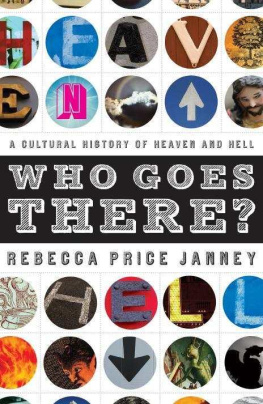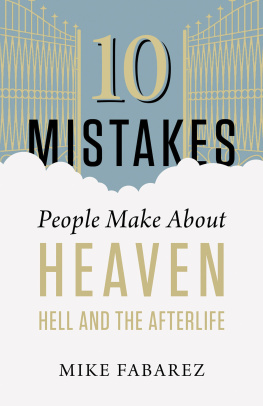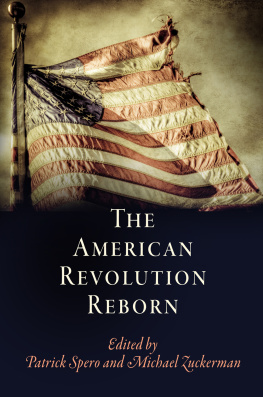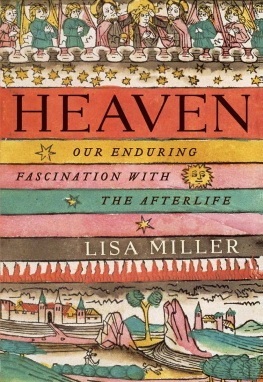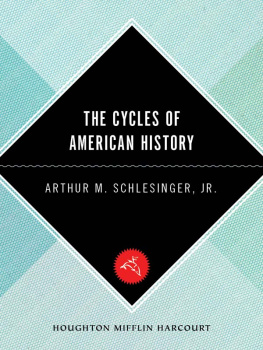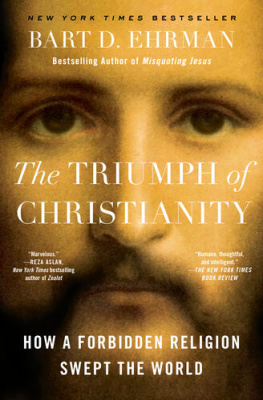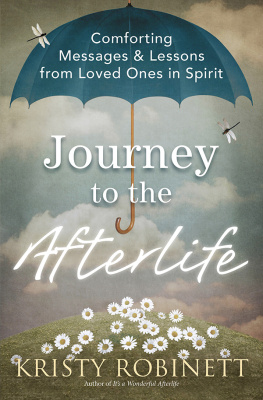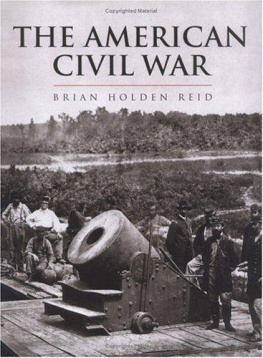A LTERNATE L IFESTYLES
T hey were countercultural and antiestablishment, men and women who lived by their own rules, apart from mainstream American life. They often made a living with their hands, creating arts and crafts, new products and techniques, as well as farming the communes in which they lived. Many of these freethinkers practiced open marriage, while others didn't consider marriage necessary. They championed causes and at times provoked violence among nonbelievers. In breaking from treasured societal norms, they set out to reinvent everything from fashions to families.
These radicals also revised cherished church teachings according to their own understanding of God and Jesus, which they considered to be higher and purer than what came from conventional pulpits. There were, however, communes that did not observe any religion at all, considering it to be antithetical to human progress. The former often tried to prepare the way for the second coming of Jesus and the hereafter by perfecting themselves and, in so doing, hoped to bring along most of American society. The latter attempted to create heaven on earth.
Perhaps this evokes a mental image of a bell-bottom-wearing individual sporting long, unwashed hair, love beads, fringe, tie-dyed T-shirt, and sandals, accompanied by such words as "hippie," "Jesus Freak," "Woodstock," and "Haight-Ashbury." That is the right framework, but the wrong era. The first countercultural Americans didn't arrive in the 1960s or '70s, but proliferated in the first part of the nineteenth century. The Janis Joplin, "Jesus Christ Superstar" generation may have seemed avant-garde at the time, but the truth is, they were far from original. They were preceded by more than a hundred years by other revolutionaries who could still manage to raise a few eyebrows today.

When the first colonists came to America, most of them were out to become a city on a hill for all the world to see and follow as they practiced their faith freely and told the native inhabitants about Jesus Christ. That they achieved this dream on many points over the next century and a half, including America's defeat of the world's strongest army, led some to believe there was nothing Americans couldn't accomplish this side of heaven, including bringing heaven to earth. In the aftermath of the American Revolution, many utopian groups formed with the goal of perfecting individuals and society. Christianity inspired most of them, but they were anything but theologically orthodox or conventional. In fact, most of them came "preaching another gospel" (Galatians 1:8).
"Backwoods Utopias" peaked between 1820 and the 1840s. They were communal and experimental with many varieties and expressions, but they were mostly united in their quest for the perfection of society. 1 Sydney Ahlstrom views them as experiments controlled by charismatic leaders who were most often "anticlerical freethinkers and Christian enthusiasts." 2 "Almost by definition," he says, "the innovators rejected codes and statutes, traditions and customsand this they did with more than usual abandon in the open society of the young American republic. In many cases they not only founded new sects, but called them out of the world." 3
Their views about the afterlife varied with the teachings of their leaders, some of whom believed they were chosen by God to bring in the millennial kingdom as this world came to its conclusion. Most of these fringe groups embraced universalism in varying degrees, believing that somehow everyone makes it to heaven, even if it's a lesser manifestation of paradise than the true believer experiences.
One of America's earliest utopian communities went by the lofty title "The United Society of Believers in Christ's Second Coming" (the Millennial Church), but they are commonly known as the Shakers, a nickname given because of their energetic brand of worship.
Unlike the majority of radical groups that emerged in America's early days, a woman founded the Shakers, an English immigrant named Ann Lee Stanley. "Mother Ann" was a dynamo prone to trances and visions. She came to America with her husband, brother, and six followers in 1774 after convincing them that Christ would return as a womanand, by the way, she was the one. 4 She believed that while Christ was the male manifestation of God, she was the deity's female expression; because of her belief in the duality of God, Mother Ann promoted equality between men and women. She maintained that neither Jesus nor she should be worshiped, however, but that both of them simply were elders in God's church. It was her job, she believed, to call people into lives of "blessedness" in this world in order to prepare for the next.
Beginning in Water Vliet, New York, and centered largely in that state as well as New England, the Shakers eventually branched out into Kentucky and Ohio. From 1830-1850 there were about six thousand followers in nineteen Shaker communities. 5 Mother Ann taught that sex was at the root of all sin and called her followers to celibacy; it wasn't necessary to procreate, she said, because "the Kingdom was literally at hand." 6 Shaker communities usually consisted of two "families" of about thirty individuals each that lived in large houses with the sexes rigidly segregated, using separate entrances, stairways, and sleeping quarters to avoid intermingling. Each family had two elders and two eldresses who were responsible for the spiritual management of the family. In order to join the Shakers, one had to engage in detailed oral confession of their sin, before witnesses, something that Mother Ann determined was necessary to attain salvation. In order to live apart from a corrupt society, they pursued self-sufficiency, with considerable success, creating economically viable communities.
The Shakers were spiritualists, believing that communication with the dead was possible, and they frequently held public seances. One Shaker apologist said, "We are thoroughly convinced of spirit communication and interpositions, spirit guidance and obsession. Our spiritualism has permitted us to converse, face to face, with individuals once mortals, some of whom we well knew, and with others born before the flood." 7
According to Shaker beliefs, there is no original sin, no Trinity of the Godhead, nor was Jesus bodily resurrected from the dead. Their concept of heaven and hell was also more complicated than orthodox Protestantism. Shakers said there are four cycles of human history, with parallels in the spiritual world, and each of these has a heaven and hell. Noah and those living before the flood were in the first cycle, with Jews who lived up to the time of Christ in the second. The corresponding heaven for that period was known as Paradise. The third cycle consisted of people who came from then until the time of Ann Lee, and the fourth was still being worked out. Christ's kingdom had truly begun only with the founding of the Shaker church and would find its completion in it. 8 According to The Shaker Manifesto, "Those in the heavens and hells of our dispensation or degree may be gathered into the heavens of the succeeding dispensation or degree, as scholars may leave the ignorance, errors, and faults of one class, or school, by going up." 9 Elder Henry Clough's reasons for being a Shaker form a summary of that group's theology. He said, "I did not set out to obey the Gospel because I felt pressed with conviction for sin, not because I was afraid of going to hell, but because the requirements of the Gospel appeared to me as reasonable. I obeyed it from choice, to do that which was evidently right. I was drawn into it and kept in it by my love for that which was right and good." 10
In the end, the Shaker kingdom never came, and they died out quickly because of their refusal to have children. Today, the Shakers are mainly remembered for their unique, eponymous style of furniture.
Next page
